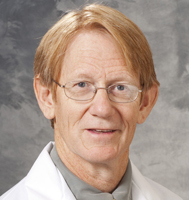Professor
School of Medicine and Public Health | Surgery
Dr. Burlingham serves on the editorial board of Transplantation. He is also the chairman of the University of Wisconsin Spring Immunology Seminar Series. Dr. Burlingham has developed a highly respected transplant basic research program that focuses on acquired immunologic tolerance. His laboratory hopes to gain insight into graft acceptance by studying transplant recipients who have survived after stopping immunosuppressive drugs. Specifically, his research focuses on the natural exchange of soluble antigens and low numbers of white blood cells that occurs between mother and child during pregnancy and nursing. The lab’s working hypothesis is that this exchange, which leads to persistence of bone marrow-derived maternal blood cells within the offspring (“microchimerism”) may induce a “natural” form of tolerance. This tolerance, if harnessed, may allow for drug-free acceptance of transplanted grafts.
Talks:
Strategies to Achieve Organ Transplant Acceptance Without the Side Effects of Lifelong Immune-Suppressive Drug Therapy
This talk deals with the problem of long-term immunosuppressive drug therapy after solid organ (kidney, liver, heart, lung, pancreas) transplantation. As a research scientist, he seeks to help transplant surgeons develop new ways to prevent rejection by the patient’s immune system so as to avoid increased risks of infection, cancer, and bone loss routinely suffered by the patient under long-term immune suppressive drug therapy. Two new approaches, use of T regulatory cells and small particles they produce called exosomes, both inspire his lab’s work in the field of maternal-fetal tolerance, and studies of lung and kidney transplant patients.
Split Tolerance: Lessons From Mother on How to Fight Cancer
This talk concerns the subject of cancer immunotherapy, a way to clear cancers from the body by enlisting the immune system to fight it. His lab’s research and that of others on the exchange of stem cells between Mother and Baby has shown how mother’s cells in our bodies keep us in a poised status—partly immunized towards her antigens but partly tolerant, due to a “checkpoint” called “programmed death ligand-1” she induces on our immune cells. This research is relevant to the discovery of new “checkpoint blockade” therapies in cancer that have resulted in cures of previously incurable tumors, such as lung cancer and pancreatic cancer.
